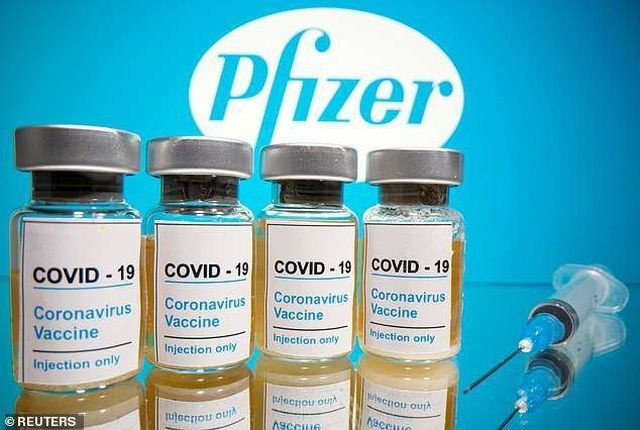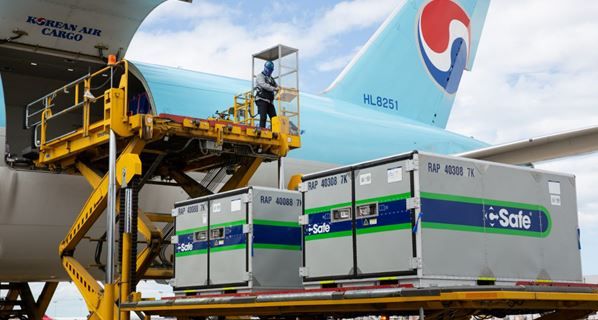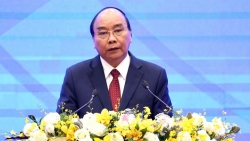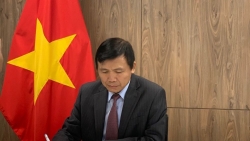
Get ready for the Covid-19 vaccine transportation
Latest
 |
| The world is racing to find a Covid-19 vaccine. |
According to the World Health Organization (WHO), there are more than 165 Covid-19 vaccine candidates currently under development, with a number of these having already reached the phase 3 trials. Recently, a vaccine Covid-19 being developed by Pfize and Germany’s BioNTech has been found more than 90% effective, this event marked the first milestones for science and humanity.
According to Mr Glynn Hughes, Global Head of Cargo at IATA, there will need to be nearly 8 billion doses distributed globally. The volume of a shipment of that size would fill more than 8,000 Boeing 747 freighter aircraft, and that is just under the assumption of a single dose being required.
If more than one dose is required, the volume will increase considerably. This generates great concern as to how the aviation sector can play its role to transport vaccines safely and efficiently across the globe when the time comes.
Transport Conditions
Vaccines are sensitive biological products which require a cold chain system, and temperature monitoring equipment, to transport them from factories to health centres and hospitals. The obvious challenge is that Covid-19 vaccines are not yet approved, so their characteristics are still unknown to people.
Industry specialists warn that young vaccines containing relatively unstable molecules will probably have to be stored at freezing temperatures of below -18°C. Hence, they will require equipment and materials such as cool boxes, refrigerated cargos and a lot of dry ice.
Consequently, the transportation task could be very challenging for stakeholders, especially at a large scale. There are some pioneering airlines who have already started to prepare for the vaccine transportation, such as Korean Air and Emirates, and are the first to seize the opportunity from this new business. However, a few capable airlines are not enough given the huge global scale required for a Covid-19 vaccine.
 |
| Korean Air Cargo ramping up for vaccine transports. (Source image: Korean Air Cargo) |
Air Freight Capacity Constraint
A large proportion of global air freight is carried in the belly of passenger aircraft. However, the majority of these aircraft are still grounded. Meanwhile there are only a limited number of freighter aircraft over the world and, given the huge demand for shipping PPE and essential goods, there has been a shortage of freighter aircraft recently.
As a result, not only has the cost of a charter flight skyrocketed, but many are also fully booked for the next 6 months, especially the Boeing 747 freighters. Hence distributing 8 billion doses as a minimum will create a huge pressure on air transportation, in addition to maintaining the global supply chain.
Given the circumstance, it is very likely that passenger aircraft will have to be utilised in conjunction with freighters. There are MROs doing aircraft conversion, which increases air freight capacity. However, this process is costly and time-consuming, hence not many airlines are willing to convert their aircraft just for short-term business.
There are passenger planes flying cargo only, yet the obvious limitation of such aircraft is that their payload is much less than freighters of the same type, but the cost of running such a charter flight remains more or less the same. As a result, the transportation cost per unit, or kilogram, would be more expensive by a passenger aircraft than freighter, sometimes to the extent that the cost is not even commercially viable.
Collaboration
Unfortunately, there is no available guidance that people can follow. That is why collaboration between governments, humanitarian organisations, vaccine manufacturers, airlines and logistics groups is essential to prepare for the shipping requirements and a viable distribution solution.
This will ensure that when a vaccine does become ready it will be distributed safely and efficiently to those who need it, in a timely manner and a suitable condition.
| The author Anna Tran is Vietnamese who live in UK. She is Business Development Manager Brookfield Aviation International that is the world leading in providing aviation personnel including pilots, engineers and specialists for airlines worldwide. In addition, Brookfield also supplys aircraft for charter and ACMI lease, as well as provide the training solution for young cadets and engineers. |

| Paris Peace Forum: Vietnam urges putting interests of people at core of policies, actions Prime Minister Nguyen Xuan Phuc, in his remarks delivered to the official opening of the third Paris Peace Forum held online on November 12, applauded ... |

| Positive outlook ahead as Vietnamese firms look to increase exports via Amazon Amid the complicated nature of the novel coronavirus (COVID-19) pandemic globally, the effective use of e-commerce, especially Amazon, is anticipated to help Vietnamese businesses boost ... |

| Vietnam joins US-led Call to Action on Women’s Economic Empowerment Ambassador Dang Dinh Quy, Permanent Representative of Vietnam to the United Nations (UN), has represented Vietnam to sign the new US-led Call to Action on ... |

















